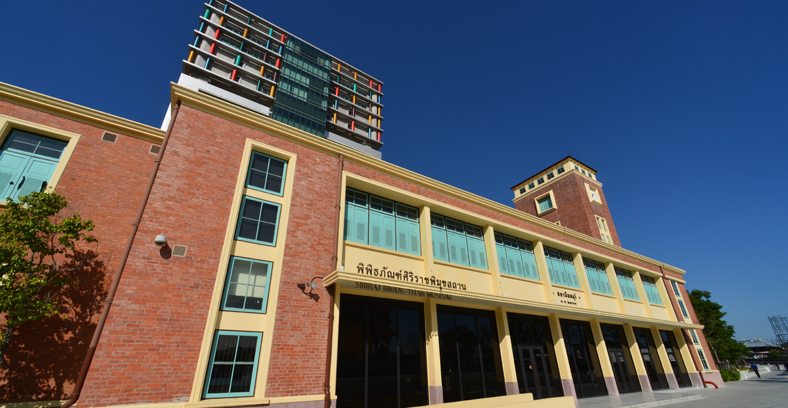Siriraj Medical Museum
The Siriraj Medical Museum, aptly nicknamed the "Museum of Death," represents Thailand's premier medical educational institution, established within the grounds of Siriraj Hospital, the country's first public hospital founded by King Rama V in 1886 and home to Thailand's oldest medical school (estab...
About the Museum
Established
1979
Affiliated Institution
Siriraj Hospital, Mahidol University
Exhibit Focus
Visiting Information
Opening Hours
Monday, Wednesday-Sunday: 10 AM-4:30 PM
Admission Fee
300 THB for all museums
Quick Facts
Photos

Google Photos
Reviews
Reviews not available via API
While this location may have reviews on Google Maps, they're not accessible through our current API integration.
View reviews on Google MapsVisiting Information
Opening Hours
Monday, Wednesday-Sunday: 10 AM-4:30 PM
Admission Fee
300 THB for all museums
Quick Facts
Contact Information
Follow Us
Location
Loading map...
Getting There & Nearby
Transportation
Located at Siriraj Hospital, accessible via Chao Phraya Express Boat to Wang Lang Pier (N10), then short walk through hospital complex, or BTS to Saphan Taksin then ferry connection.
Nearby Attractions
- •Wang Lang Market
- •Royal Barges National Museum
- •The Grand Palace
- •Temple of the Emerald Buddha (Wat Phra Kaew)
- •National Museum Bangkok
Browse Museums by City
Other Museums in Bangkok

Berlin Pharmaceutical Museum
The Berlin Pharmaceutical Museum, situated on Charoen Krung Road in Bangkok's historic Chinatown, chronicles the fascinating evolution of Western medicine in Thailand from the 17th-century Ayutthaya period to modern times. Housed in a century-old European-style yellow building that once served as the pioneering Berlin Dispensary, the museum commemorates Dr. Chai Chainuvati, a Chinese immigrant who graduated from Tongji German Medical School in Shanghai and established one of Thailand's first private Western medicine clinics in 1932. The museum features three compelling sections: a chronological exhibition of Dr. Chai's life journey and the history of Chinese immigration, meticulously recreated facilities including an authentic examination room with original journal entries and a traditional pharmacy, and displays showcasing the transformation from a small neighborhood clinic to the internationally recognized Berlin Pharmaceutical Industry. Key artifacts include original medical equipment, documents, and pharmaceutical tools used by Dr. Chai, alongside family photographs and historical memorabilia that bring to life the early days of Western medical practice in Thailand. The museum not only honors Dr. Chai's legacy of providing free treatment to impoverished patients but also serves as a cultural bridge, illustrating the broader narrative of Chinese immigration and the development of Thailand's pharmaceutical industry. This intimate museum offers visitors, particularly older generations familiar with Berlin Dispensary's medications, a nostalgic journey through Bangkok's medical heritage while educating younger visitors about the foundations of modern healthcare in Thailand.

Chulalongkorn University Museum of Natural Medicine
The Chulalongkorn University Museum of Natural Medicine, housed on the third floor of the Osothsala Building within the Faculty of Pharmaceutical Sciences, serves as a remarkable repository documenting the evolution of pharmacy and traditional medicine from ancient times to the present. Opened on March 26, 2001, by Her Royal Highness Princess Maha Chakri Sirindhorn, this specialized museum was established to collect and conserve examples of Thai and foreign medicinal herbs, pharmaceutical instruments, and diverse pharmaceutical knowledge. The museum showcases the rich history of pharmacy through an impressive collection that includes the evolution of tools for making Thai medicine, authoritative batons and red sashes of royal doctors, traditional medicine grinders, and modern machines for making medicinal tablets and capsules. As part of a faculty established in 1913, the museum represents over a century of pharmaceutical education and serves as both an academic reference center for students and a cultural bridge connecting traditional Thai healing practices with modern pharmaceutical science. The institution maintains international cooperation through academic exchanges with museums worldwide, including its sister institute at the Institute of Oriental Medicine Research at Toyama Medical and Pharmaceutical University in Japan. Located within one of Thailand's most prestigious universities, the museum offers visitors a unique educational experience exploring the intersection of traditional herbal medicine and contemporary pharmaceutical innovation.
Museum of Thai Pharmacy
Museum established to publicize traditional Thai medicine from past to present for later generations to learn and treasure.
Frequently Asked Questions
Find answers to common questions